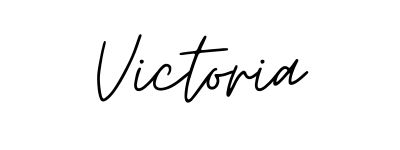
What It Means to Train Your Heart: Catholic Spiritual Formation for the Weary and Neurodivergent
You came to the Catholic faith hoping for peace and longing for spiritual formation. But instead, you find yourself treading water—surrounded by rules you don’t understand, prayers that sometimes feel like empty echoes, and wounds that ache quietly beneath the surface. There’s a part of you that wonders: Is it me? Am I broken beyond repair? You imagined the path would be bright and clear, yet it feels tangled and shadowed, the way forward hidden beneath expectations you can’t seem to meet.
Whether you’re a convert or cradle Catholic—neurotypical or living within the challenges of neurodivergence—this longing for clarity and peace is universal. The ache for true Catholic spiritual formation runs deep when your faith feels like performance instead of transformation.
Welcome to Training of Hearts—a place for formation, not performance.
This isn’t a quick-fix faith or a checklist spirituality. This is the long work of healing. The hidden work of letting Christ seep into the cracks we’d rather keep hidden. Whether you are a convert standing on fresh soil, a cradle Catholic who feels numb in the pew, or someone quietly wrestling invisible battles of Catholic neurodivergent faith, you belong here. Training your heart means learning the slow, patient rhythms of transformation—where grace meets your humanity, not to erase it, but to heal and elevate it.
The Perfectionism Trap
We live in a world that rewards performance. Show up polished. Get it right. And when we bring that mindset into our faith, it feels deceptively holy. We become performers for God, mistaking His love for applause. We make holiness into a show, even when our souls are weary and fractured.
Especially if you are neurodivergent or carry old wounds, you know this script well. You’ve spent years trying to blend into a world that wasn’t built for your wiring, learning to mask your struggles with competence. It’s easy to think the spiritual life is just another arena where you have to measure up.
But perfectionism is a thief. It whispers that unless you do it flawlessly, don’t do it at all. It turns prayer into pressure, and virtue into a tally. And when (inevitably) you fall short, the shame seeps in—telling you you’re failing, that you were never cut out for this. So you try harder. White-knuckle it. Burn out. Retreat. Start over.
The Church, in her wisdom, offers tools—devotions, sacraments, prayers—but these aren’t meant to be hoops we jump through for holiness. They are bridges to relationship. The heart of Catholic spiritual formation is not “do more” but “be with Me.” And true formation starts when we stop performing long enough to let grace begin its deeper work.
Here, in the hidden space where striving gives way to surrender, your heart begins to learn its true shape.
What Formation Really Means
If perfectionism is a trap, formation is the slow untangling. It’s the daily return to Christ with your imperfect, unfinished self—and discovering that He meets you right there. St. Paul tells us in Romans 12:2 to “be transformed by the renewal of your mind,” and that transformation is anything but instant. It is a long, beautiful undoing—and a becoming.
Formation is layered:
- Human formation: The slow building of virtue, emotional resilience, and habits that let us love well and live rooted in reality.
- Spiritual formation: Growing closer to God in prayer, sacrament, and stillness.
- Intellectual formation: Learning the truth that steadies us—about God, about ourselves, and about the world.
- Pastoral formation: Learning to pour out what we’ve received in service to others.
As the Catechism of the Catholic Church teaches, “God’s free initiative demands man’s free response” (CCC 2002). Formation is not just self-improvement—it is our daily yes to God’s invitation to be transformed by grace.
those navigating Catholic neurodivergent faith, these layers can look and feel different—but the invitation is the same: bring your whole self. Let grace weave through every part of you.
The Church offers us rhythms to grow: the turning of the liturgical year, the familiar pulse of sacraments, the patient call to obedience. These are not tasks to conquer but invitations to belong—to live in sync with heaven while still standing on earth.
And growth? It happens here, in the small and the slow: folding laundry, whispering prayers when your mind is numb, showing up to confession after months of silence. It is the quiet faithfulness of a heart learning to trust that even unseen seeds can break open and bloom.
Avoiding the Two Ditches
But even formation, when misunderstood, can go sideways. There are two ditches we often fall into—the first, legalism, where faith becomes a rigid performance. We cling to rules because they give us control, a measurable sense of holiness. For converts especially, this can feel like safety—a checklist to prove we belong. I know that temptation well, the ache to prove my worth in a faith community that felt impossibly polished. But legalism starves the soul. It offers structure without intimacy.
The second ditch is permissiveness—where mercy is twisted into license. Here, holiness becomes optional, sin minimized, and God’s justice softened until it’s barely recognizable. We start to believe love means never being challenged to grow. But true love—God’s love—always calls us higher, not to crush us but to free us.
The narrow way of formation weaves between these two extremes. It holds mercy and truth together, knowing that grace isn’t just a comfort but a transforming fire. It reminds us that we are loved as we are—and too much to be left there.
Neurodivergence + Formation
For those of us living with Catholic neurodivergent faith, the call to formation can feel like climbing a mountain barefoot. Executive dysfunction makes even simple routines feel impossible. Emotional dysregulation can hijack our best intentions. Sensory overwhelm and scrupulosity cloud the clarity we crave. But here is the miracle: God sees it all. He knows your wiring because He formed you in the secret place. He is not waiting for you to become someone else before He begins His work. He works within your very neurology, weaving grace into every frayed thread.
Consider St. Thérèse of Lisieux— the details of her childhood hypersensitivity, her intense interior life and meticulous Little Way reflect markers of autism. Or St. Teresa of Avila, who spoke of her restless spirit as wild horses hinting at the emotional disregulation present with a neurodivergent mind. Or St. Margaret Mary Alacoque, with her hyper fixation on devotion, echoing traits of ADHD. They didn’t become saints by shedding their wiring—but by letting Christ transform them through it.
You, too, are being invited. Not to a faith that crushes your uniqueness, but one that shapes it—making of your wildness something beautiful and whole.
Real-Life Formation: The Messy, Beautiful Middle
So what does this actually look like? What does it mean to walk this narrow, grace-filled path in the middle of a loud, busy life?
It looks like whispering a Hail Mary through sensory overload, clinging to that thread of prayer when the full Rosary feels impossible. It’s choosing confession even when scrupulosity or rejection sensitivity tries to convince you you’re beyond mercy. It’s getting out of bed again despite executive dysfunction, offering your yes in the chaos of bedtime meltdowns, pausing to regulate before responding in anger, and opening the Scriptures even when your mind jumps and wanders, trusting God to meet you in the disjointed spaces.
For me, it’s looked like learning to pray in the middle of meltdowns—my children’s and my own. It’s been the slow discovery that tiny, hidden acts of faithfulness are building something eternal, even when no one sees them. It’s realizing that every stumble, every return, every halting prayer is a thread God is weaving into a tapestry of grace.
We measure ourselves against polished images of holiness, but true formation looks more like a messy, half-built cathedral—under construction, always. And every small brick matters.
A Gentle Invitation
You don’t have to have it all together to belong here. This space—this community—is for the unfinished, the in-process, the ones who keep showing up despite the doubts and detours.
If your heart aches for deeper healing, if you’re tired of white-knuckling your way through faith, I invite you to stay. Subscribe for more reflections and gentle practical tools to help you train your heart—not with pressure, but with grace.
And before you close this tab, pause. Breathe. Let these words settle:
Lord, shape my heart—not into a perfect performance, but into a resting place for Your mercy. Teach me to trade striving for trust, and remind me that in every small yes, You are making me new. Amen. -A prayer from Training of Hearts
You are seen here. You are safe here. You are being formed, even now.

